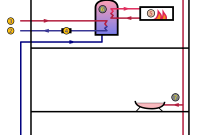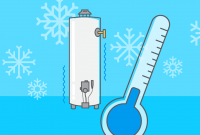
Discover how to identify your domestic hot water needs in this detailed guide. Learn how to optimize your hot water usage efficiently.
Introduction
When it comes to domestic hot water, many of us take it for granted until we’re met with a cold shower or inadequate supply. Identifying your domestic hot water needs is crucial to ensure a consistent and efficient supply of hot water for your daily activities. In this comprehensive guide, we’ll delve into the intricacies of understanding and meeting your hot water requirements. From energy-efficient solutions to common FAQs, we’ve got you covered.
Identify Your Domestic Hot Water Needs
Assess Your Household Size
The first step in identifying your domestic hot water needs is to assess your household size. The number of people in your home directly impacts the demand for hot water. Larger households require larger heating systems to meet the demand adequately. For a family of four or more, a tankless water heater might be the ideal choice, as it provides a continuous supply of hot water without the need for a large storage tank.
Analyze Daily Hot Water Usage
Understanding your daily hot water usage patterns is crucial. Take note of activities such as showers, dishwashing, laundry, and cooking that require hot water. This analysis will help you determine the peak hot water demand times in your household, allowing you to choose an appropriately sized water heater.
Consider Energy Efficiency
In today’s environmentally conscious world, energy efficiency is paramount. When identifying your domestic hot water needs, opt for energy-efficient appliances and heating systems. Look for the ENERGY STAR label, which signifies products that meet strict energy efficiency guidelines. This not only reduces your carbon footprint but also lowers your utility bills.
Evaluate Existing Systems
If you’re replacing an old hot water system, evaluate its performance. Is it providing enough hot water? Has it been requiring frequent repairs? Assessing your existing system’s shortcomings will help you make an informed decision when upgrading to a new one.
Location Matters
The geographical location of your home can impact your hot water needs. Colder climates might require larger and more powerful heating systems to ensure a consistent supply of hot water during winter months. Consult with a local expert to determine the best system for your location.
Explore Renewable Energy Options
In recent years, renewable energy sources like solar water heaters have gained popularity. They harness the power of the sun to heat water, reducing both energy consumption and utility bills. If you’re environmentally conscious and live in a sunny area, this option can be a game-changer.
FAQs
What is the ideal water heater for a small apartment?
For a small apartment, a tankless water heater is an excellent choice. It takes up minimal space, provides hot water on demand, and is energy-efficient.
Can I install a water heater myself?
While some people opt for DIY installation, it’s advisable to hire a professional. Improper installation can lead to safety hazards and reduced efficiency.
How can I make my water heater more energy-efficient?
To improve energy efficiency, insulate your hot water tank, set the thermostat to 120°F (49°C), and fix any leaks promptly. Regular maintenance also plays a crucial role.
What’s the lifespan of a typical water heater?
The lifespan of a water heater varies depending on the type and maintenance. On average, traditional tank heaters last 8-12 years, while tankless heaters can last 20 years or more.
How can I reduce hot water wastage?
Reducing hot water wastage is easy. Fix leaks, install low-flow fixtures, and consider a recirculation system to minimize the time it takes for hot water to reach your taps.
Is it worth investing in a solar water heater?
Investing in a solar water heater is a wise choice if you have ample sunlight. It not only reduces your energy bills but also contributes to a sustainable future.
Identify Your Domestic Hot Water Needs: Conclusion
Identifying your domestic hot water needs is a critical step in ensuring comfort and energy efficiency in your home. By assessing your household size, daily usage, and location, and considering energy-efficient options, you can make informed decisions that save both money and the environment. Don’t wait for a cold shower to remind you—it’s time to take control of your hot water needs.


